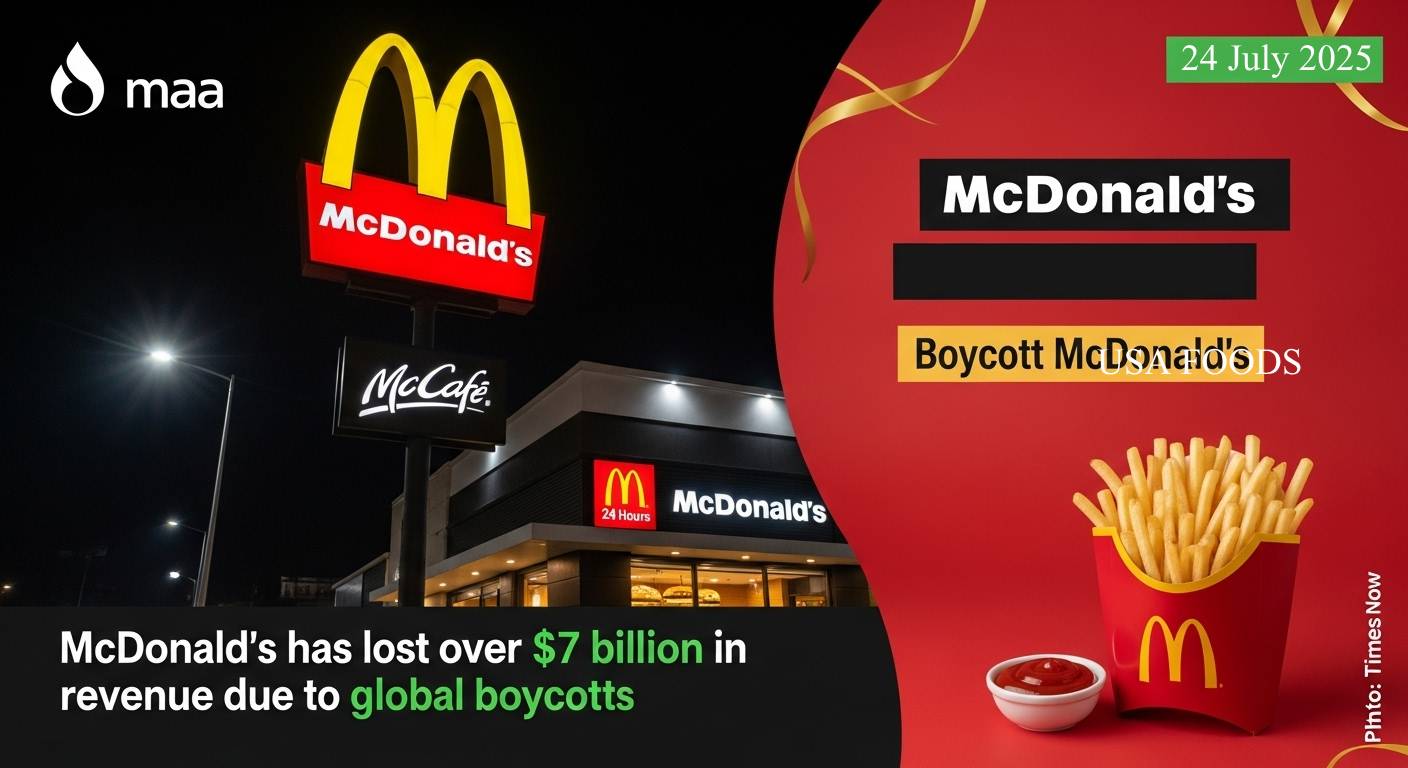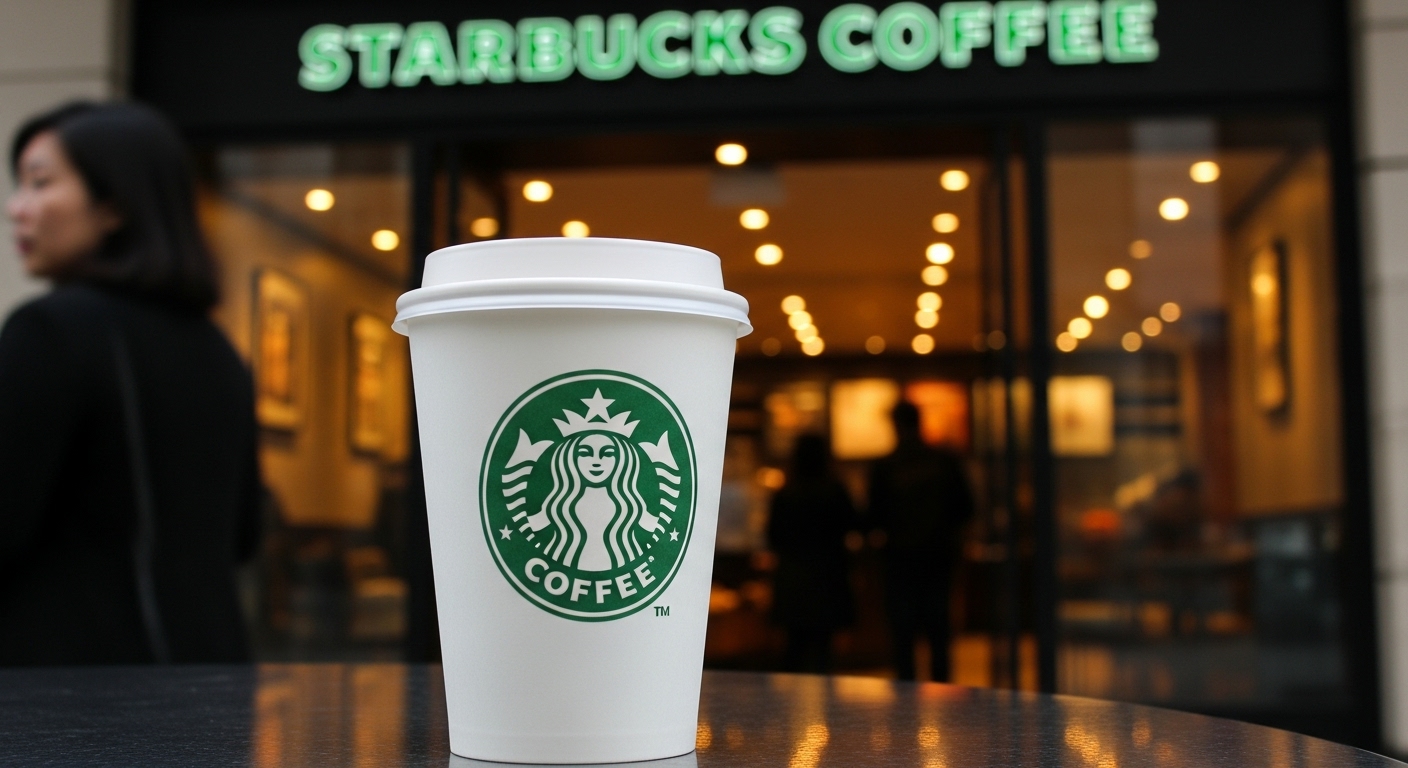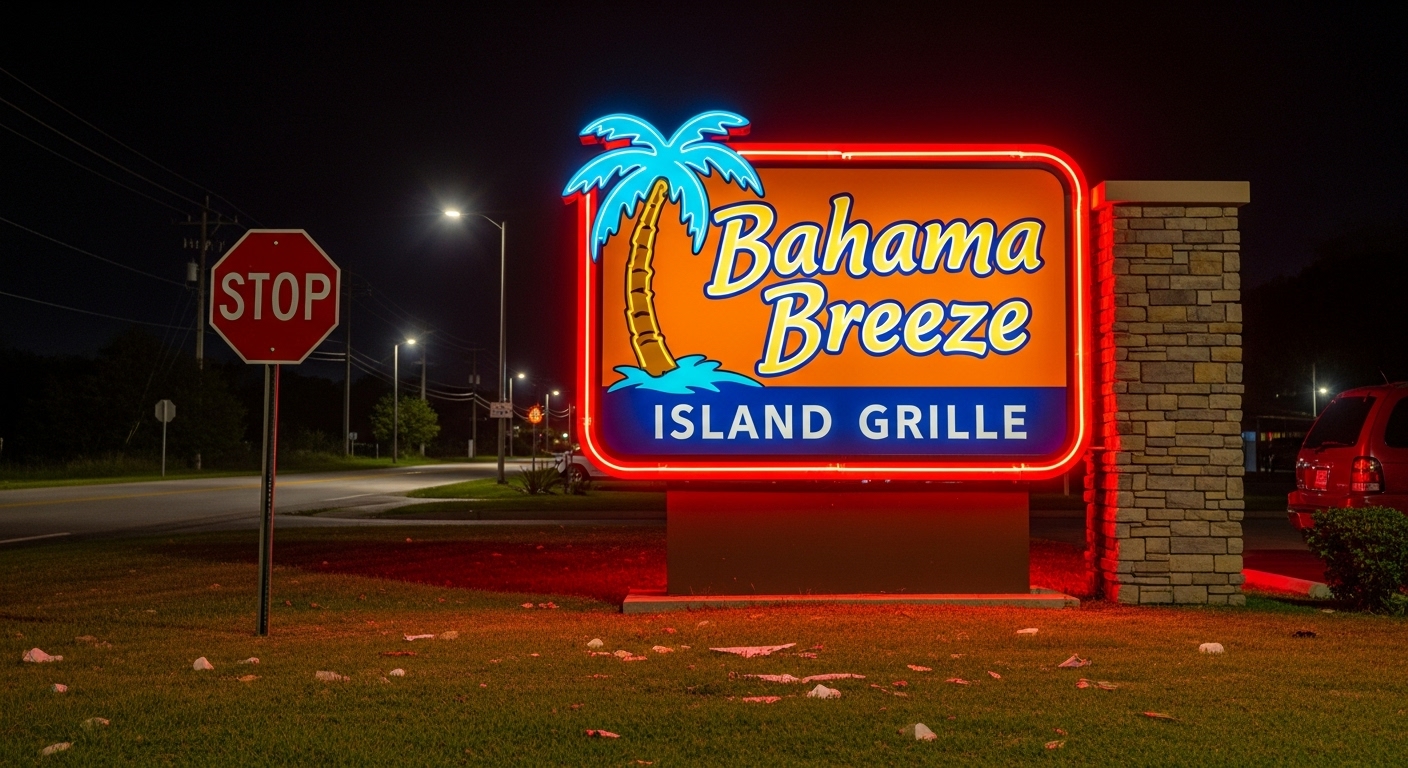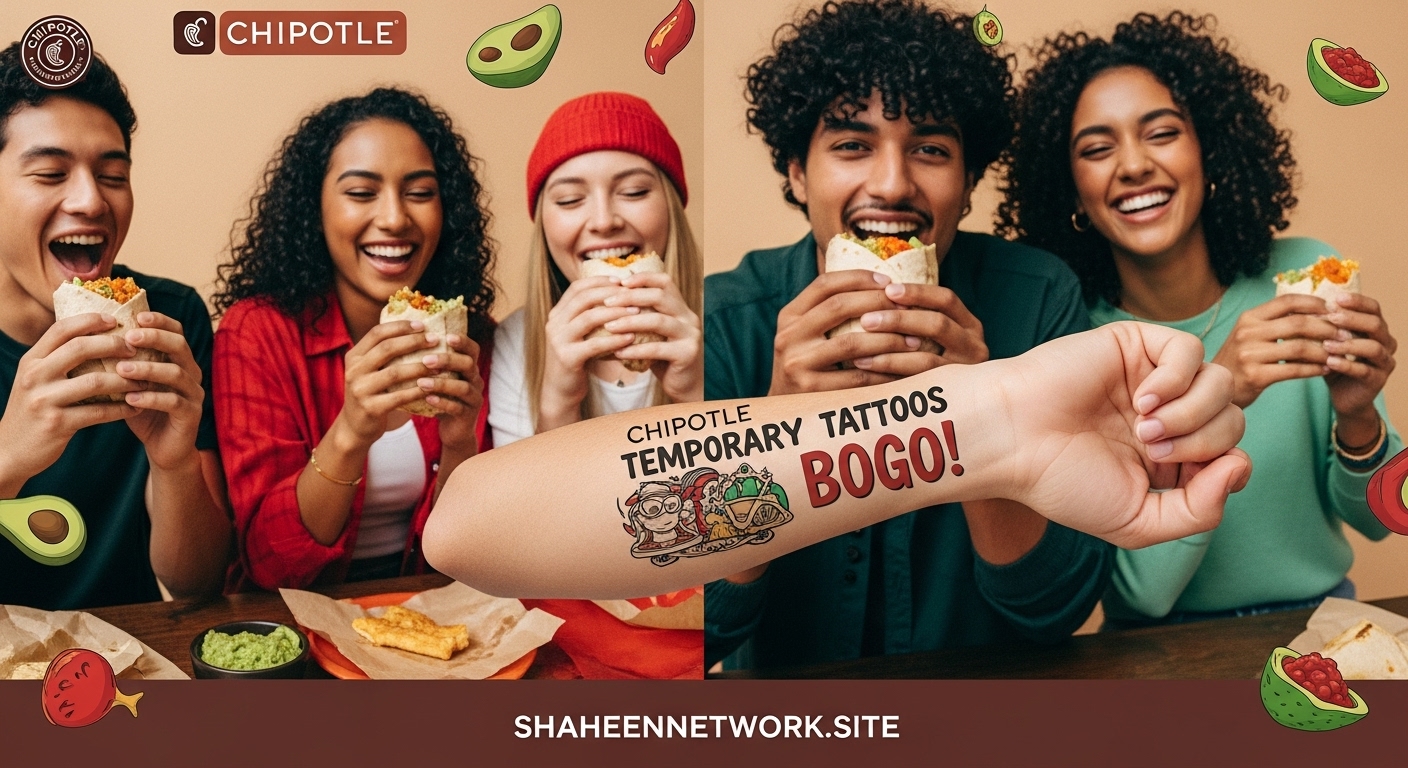Understand the reasons behind the McDonald Boycott currently underway, including The People’s Union USA’s demands and the ongoing Israel-Palestine conflict. Learn about its financial impact and what this global protest means for the fast-food giant in 2025.
The iconic Golden Arches of McDonald’s are currently under a heightened level of scrutiny as the fast-food giant faces a significant McDonald boycott. This isn’t a singular, isolated protest but rather a confluence of various movements, each with distinct grievances, converging to put immense pressure on the global corporation. The impact of this McDonald boycott is already being felt, particularly in recent sales figures, and it underscores a growing trend of “political consumerism” where consumers actively use their purchasing power to advocate for social and economic change.
Table of Contents
The Genesis of the Boycott: A Multifaceted Movement
The current McDonald boycott is not a monolithic entity. Instead, it’s a combination of several, at times overlapping, movements that have gained traction over the past few years, intensifying significantly in late 2023 and carrying through into 2025. Understanding these distinct origins is crucial to grasping the full scope of the pressure McDonald’s is under.
1. The Israel-Palestine Conflict and the BDS Movement
One of the most prominent and globally impactful drivers of the McDonald boycott emerged in late 2023, stemming from actions taken by a McDonald franchisee in Israel. Following the escalation of the conflict in Gaza, McDonald’s Israel (Alonyal Limited) announced it was providing free meals to Israeli soldiers and hospitals. This move, widely publicized on social media by the franchisee itself, sparked immediate and widespread outrage, particularly among pro-Palestinian activists and consumers in predominantly Muslim countries.
The Boycott, Divestment, Sanctions (BDS) movement, a Palestinian-led global campaign, quickly endorsed and amplified calls for a McDonald boycott. The core argument of the BDS movement and its supporters is that by providing free meals to the Israeli military, McDonald’s Israel became complicit in actions perceived as human rights violations and war crimes against Palestinians. While McDonald’s Corporation quickly distanced itself, stating that local franchisees operate independently and that the parent company is “not funding or supporting any governments involved in this conflict,” the damage to its brand reputation in many international markets was immediate and significant. The parent company’s subsequent decision in April 2024 to buy back all 225 McDonald’s restaurants in Israel from Alonyal Limited, acknowledging the “meaningful business impact due to the war and associated misinformation,” further highlighted the severity of this particular aspect of the McDonald boycott. This move, however, has also been viewed cynically by some, who argue it was a belated attempt to mitigate financial losses after substantial revenue hits.
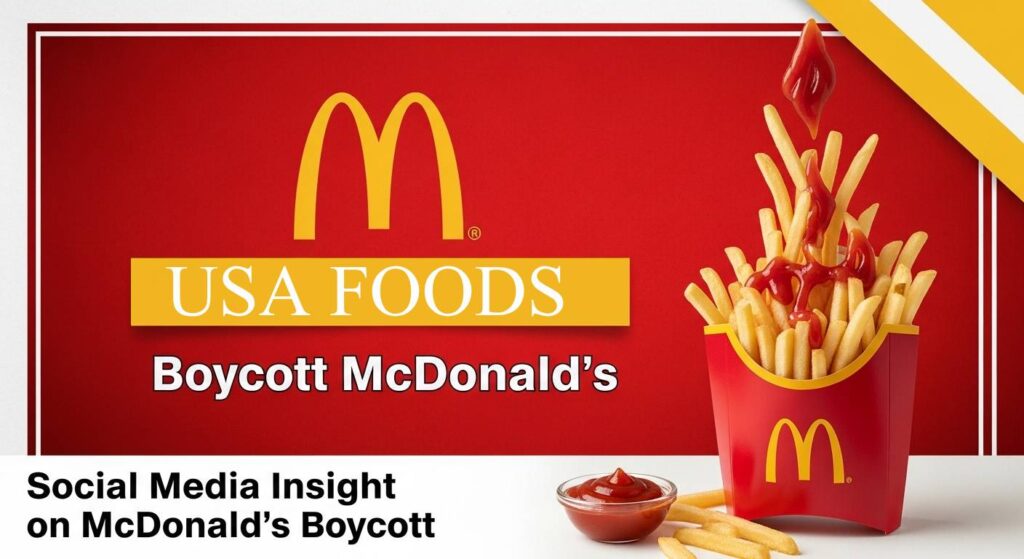
2. The People’s Union USA: Economic Resistance and Corporate Accountability
More recently, particularly in the United States, a new wave of the McDonald boycott has been orchestrated by The People’s Union USA. This grassroots movement, founded by John Schwarz, advocates for “economic resistance” and “corporate accountability” as a means to achieve “real justice for the working class.” Their ongoing “Economic Blackout Tour” has previously targeted other major corporations like Amazon, Walmart, and Target, aiming to pressure large businesses to adopt fairer practices.
The People’s Union USA launched a specific McDonald boycott campaign from June 24 to June 30, 2025. Their grievances against McDonald’s are multifaceted and include:
- Tax Avoidance: Allegations that McDonald’s exploits loopholes and offshore tax havens to pay less in taxes than even its minimum wage employees.
- Price Gouging: Claims that McDonald’s has dramatically raised menu prices in recent years, despite recording record profits, making their products unaffordable for many consumers struggling with inflation.
- Anti-Union Tactics and Low Wages: Accusations that McDonald’s has a history of suppressing workers’ rights, engaging in anti-union activities, and leveraging franchise loopholes to avoid direct responsibility for fair wages and benefits across its vast network.
- Environmental & Supply Chain Concerns: Allegations that McDonald’s global supply chain is connected to deforestation, poor labor conditions, and unsustainable agricultural practices.
- “Performative DEI”: Criticism that McDonald’s engages in superficial Diversity, Equity, and Inclusion (DEI) initiatives for public relations, while their political donations and lobbying efforts often undermine equity, labor rights, and marginalized communities. This comes amidst reports that McDonald’s scaled back some measurable DEI goals and programs in early 2025, joining a trend seen in other corporations.
This particular McDonald’s boycott highlights a growing discontent with corporate practices, transcending traditional political divides and uniting consumers on issues of economic fairness and social responsibility.
The Impact on McDonald: Sales, Reputation, and Strategy Adjustments
The combined pressure of these boycott movements has undeniably impacted McDonald’s, both financially and reputationally.
Financial Repercussions: A Tangible Hit
While difficult to quantify the precise impact of each boycott strain, McDonald’s has reported significant sales declines in various markets. The CEO, Chris Kempczinski, acknowledged in early 2024 that the conflict in the Middle East was having a “meaningful business impact” on sales in the region and in some Muslim-majority countries. More recently, McDonald’s first-quarter earnings report for 2025 revealed a 3.6% year-over-year decrease in U.S. comparable sales, contributing to a 3% decline in operating income. Foot traffic to McDonald’s stores also reportedly fell by 2.6% during this period.
These figures indicate that the McDonald boycott, alongside broader macroeconomic challenges like inflation and heightened consumer anxiety, is contributing to a challenging environment for the company. The ongoing boycott by The People’s Union USA, particularly in the critical U.S. market, is expected to compound these existing difficulties, with analysts suggesting even a week-long protest could visibly dent quarterly performance if it gains significant traction.
Reputational Damage: A Tarnished Image
Beyond immediate financial hits, the McDonald boycott has inflicted considerable reputational damage. A brand built on family-friendliness, convenience, and consistent quality, McDonald’s now finds itself embroiled in complex sociopolitical debates. The allegations of complicity in conflict, tax avoidance, worker exploitation, and superficial DEI initiatives contradict the positive public image the company strives to project.
Consumer trust, once a bedrock of McDonald’s success, is now under threat. Studies indicate that a significant percentage of consumers are less likely to buy from companies that take a stand on issues they disagree with, or conversely, if they perceive a company’s actions as unethical. This erosion of trust can have long-term consequences, impacting brand loyalty and making it harder to attract new customers, particularly among younger generations who are often more socially conscious.
McDonald’s Response and Future Strategies
McDonald’s has largely maintained a cautious public stance regarding the boycotts. In response to the Israeli controversy, the company emphasized the independent nature of its franchisees and the neutrality of the parent corporation. The buy-back of the Israeli franchises was a significant step to regain control and mitigate brand damage.
Regarding the criticisms from The People’s Union USA, McDonald’s has not issued a direct public statement specifically addressing the June 2025 boycott. However, their CEO, Chris Kempczinski, noted in April that consumers were “grappling with uncertainty” and that “value promotions” would be key to winning back customers. This suggests a focus on affordability as a strategy to counter economic pressures and perhaps implicitly, to address concerns about price gouging.
Internally, McDonald’s has stated it has “updated its DEI language” but insists “none of our programming has changed,” seeking to clarify its position amidst criticisms of scaling back diversity initiatives. Historically, McDonald’s has also stated it would not use its resources to oppose minimum wage increases, a point of contention for labor advocates.
The challenge for McDonald’s lies in navigating a complex landscape where consumer decisions are increasingly intertwined with ethical, political, and social values. Traditional marketing strategies focused solely on product and price may no longer be sufficient to counter the powerful narrative of a consumer McDonald’s boycott. The company will likely need to:
- Re-evaluate its corporate social responsibility (CSR) initiatives: Ensure that their actions align with their stated values and address key concerns raised by activist groups.
- Enhance transparency: Provide clearer communication regarding their supply chains, labor practices, and tax policies.
- Focus on local community engagement: Strengthen ties with local communities to rebuild trust at a grassroots level, leveraging their franchise model.
- Adapt pricing strategies: Continue to offer value options to appeal to budget-conscious consumers and counter “price gouging” accusations.
The Broader Landscape: A New Era of Consumer Activism
The McDonald’s boycott is not an isolated incident. It is part of a broader global trend of political consumerism and “economic resistance.” Consumers are increasingly aware of the ethical implications of their purchasing decisions and are willing to use their wallets as a form of protest. This shift has been amplified by social media, which allows boycott movements to gain traction rapidly and organize collective action on an unprecedented scale.
Companies today face increasing scrutiny from all sides, caught in a delicate balance between pleasing shareholders, satisfying customers, and navigating complex geopolitical and social issues. The success or failure of the current McDonald boycott will serve as a significant case study in this evolving landscape of corporate accountability and consumer power.
Conclusion: A Test of Resilience for the Golden Arches
The current McDonald’s boycott represents a formidable challenge for the global fast-food giant. Fueled by deeply held convictions related to geopolitical events and economic justice, these movements are impacting sales and tarnishing a meticulously built brand image. While McDonald’s has initiated steps to address some concerns, the ongoing nature and multifaceted origins of the boycott indicate that a complete resolution will require sustained effort, genuine commitment to ethical practices, and transparent communication.
As the week-long boycott by The People’s Union USA unfolds, and the broader BDS movement continues its pressure, the coming months will be a crucial test of McDonald’s resilience and adaptability in an era where consumer activism is more organized and impactful than ever before. The golden arches may signify consistency and convenience for many, but for a growing segment of consumers, they have become a symbol of deeper societal debates, making the McDonald boycott a central narrative in the ongoing discussion about corporate responsibility in the 21st century.
